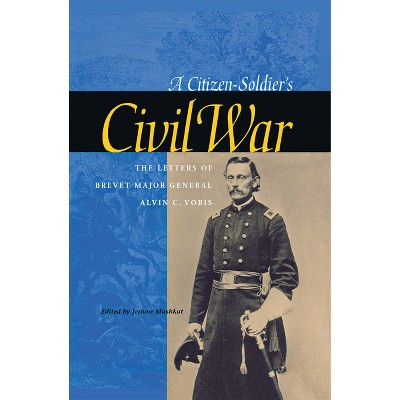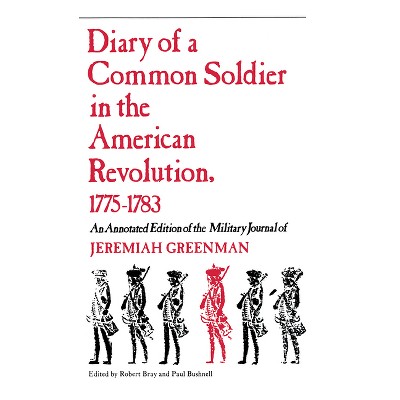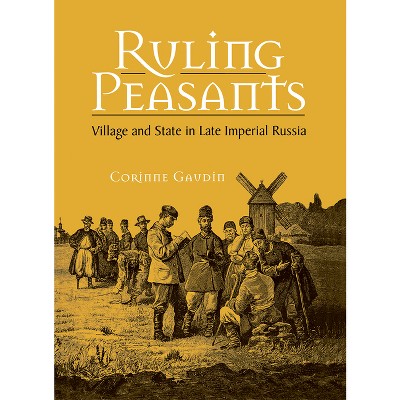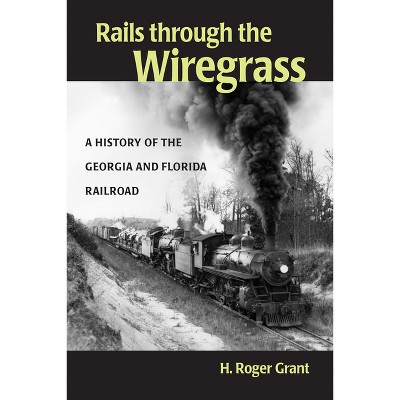Chicago's Progressive Alliance - Annotated by Georg Leidenberger (Hardcover)

About this item
Highlights
- By the turn of the twentieth century, Chicago, site of the Haymarket affair and the Pullman strike, had acquired a reputation as the bastion of labor unions.
- About the Author: Georg Leidenberger is Professor of History at the Universidad Autónoma Metropolitana in Mexico City.
- 210 Pages
- Transportation, General
Description
About the Book
By the turn of the twentieth century, Chicago, site of the Haymarket affair and the Pullman strike, had acquired a reputation as the bastion of labor unions. At the same time, Progressive-era Chicago was known as the laboratory of social reform--the city where muckraking journalists, college-trained professionals, and civic-minded millionaires worked together to rebuild the slums, improve sanitation, and eradicate political corruption. When union workers and middle-class reformers united, the combination of labor militancy and astute politics was truly a force to be reckoned with.
In Chicago's Progressive Alliance, Leidenberger tells the story of the coalition of reformers and workers advocating municipal control of Chicago's streetcars. Why streetcars? At the time, streetcars were the main mode of transportation for Chicago's diverse population, so common interest certainly played a factor. Workers also shared the reformers'ideology, and issues surrounding streetcars encompassed a host of Progressive concerns: the debate over the extent of state power over private service enterprises, the crusade against corruption, and the uses and public nature of city spaces. Most important, the alliance embodied Progressivism's central ideal--overcoming class conflict and defining the public interest. By examining the alliance's formation, political tactics, and ultimate demise, Leidenberger offers new insights on the history of labor, class relations, and political culture in urban America. Dramatic photos of streetcars and of union laborers and their supporters accentuate this study of Progressivism in action. Chicago's Progressive Alliance will appeal to those interested in American political history, labor history, urban history, and transportation history.Book Synopsis
By the turn of the twentieth century, Chicago, site of the Haymarket affair and the Pullman strike, had acquired a reputation as the bastion of labor unions. At the same time, Progressive-era Chicago was known as the laboratory of social reform--the city where muckraking journalists, college-trained professionals, and civic-minded millionaires worked together to rebuild the slums, improve sanitation, and eradicate political corruption. When union workers and middle-class reformers united, the combination of labor militancy and astute politics was truly a force to be reckoned with.
In Chicago's Progressive Alliance, Leidenberger tells the story of the coalition of reformers and workers advocating municipal control of Chicago's streetcars. Why streetcars? At the time, streetcars were the main mode of transportation for Chicago's diverse population, so common interest certainly played a factor. Workers also shared the reformers' ideology, and issues surrounding streetcars encompassed a host of Progressive concerns: the debate over the extent of state power over private service enterprises, the crusade against corruption, and the uses and public nature of city spaces. Most important, the alliance embodied Progressivism's central ideal--overcoming class conflict and defining the public interest.
By examining the alliance's formation, political tactics, and ultimate demise, Leidenberger offers new insights on the history of labor, class relations, and political culture in urban America. Dramatic photos of streetcars and of union laborers and their supporters accentuate this study of Progressivism in action. Chicago's Progressive Alliance will appeal to those interested in American political history, labor history, urban history, and transportation history.
Review Quotes
Concise and clearly articulated, this argument successfully defends the notion that labor organizations had both power and public support, albeit briefly, for a broader vision of public policy.
-- "AMERICAN HISTORICAL REVIEW"Pioneering and well-researched. Leidenberger argues persuasively that Chicago workers, far from being more apolitical than their British or European counterparts, were at the heart of municipal reform politics during the Progressive era.
-- "urban history"This is a very compelling story of Chicago labor and progressive politics. Leidenberger uses the struggle over urban transit to highlight shifting currents in the city's urban politics. Commendably, he gives Chicago's turn-of-the-century labor movement the central role it deserves in this drama.
--H. Shelton Stromquist, University of IowaAbout the Author
Georg Leidenberger is Professor of History at the Universidad Autónoma Metropolitana in Mexico City.
Shipping details
Return details
Trending Poetry











